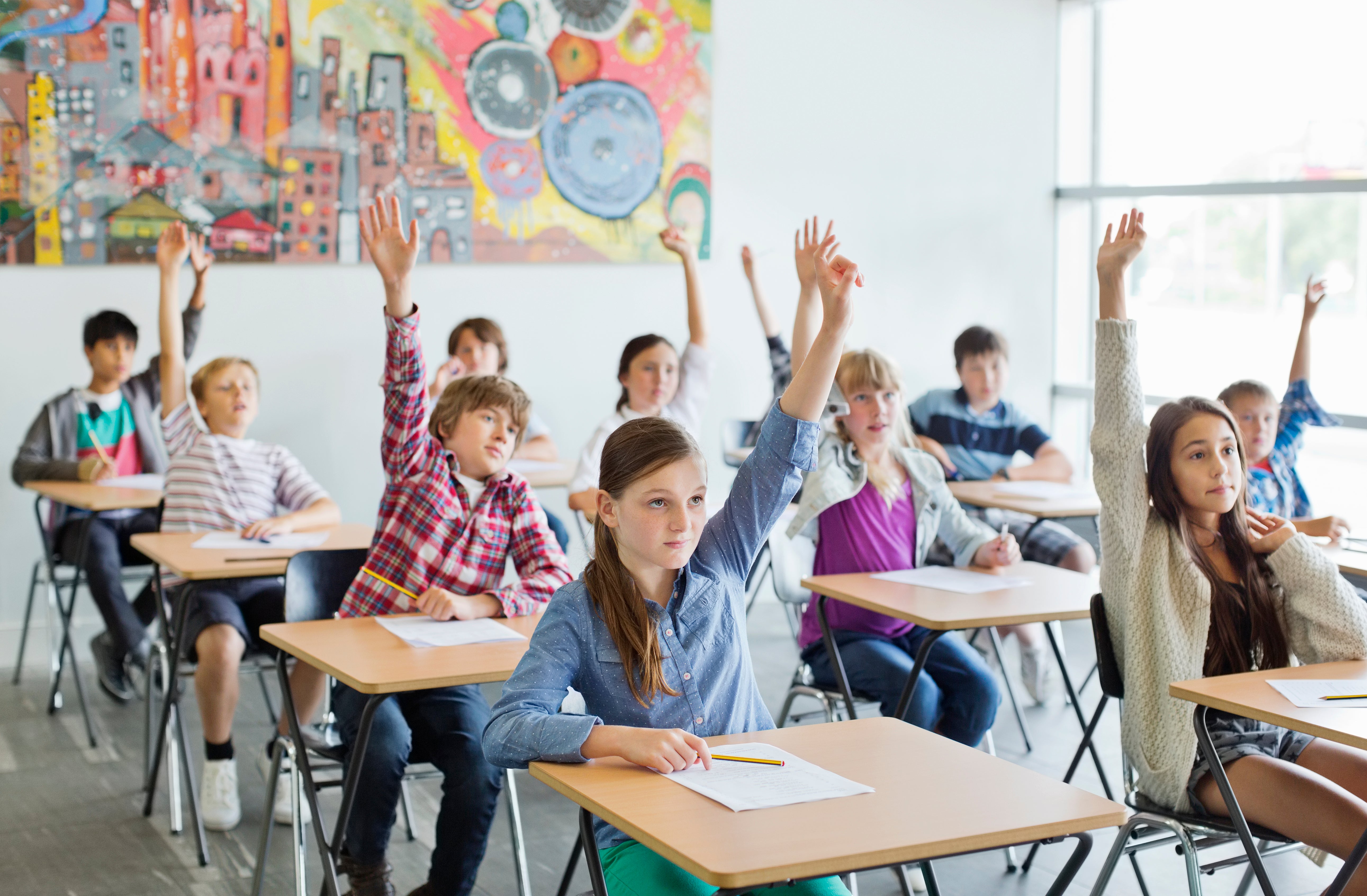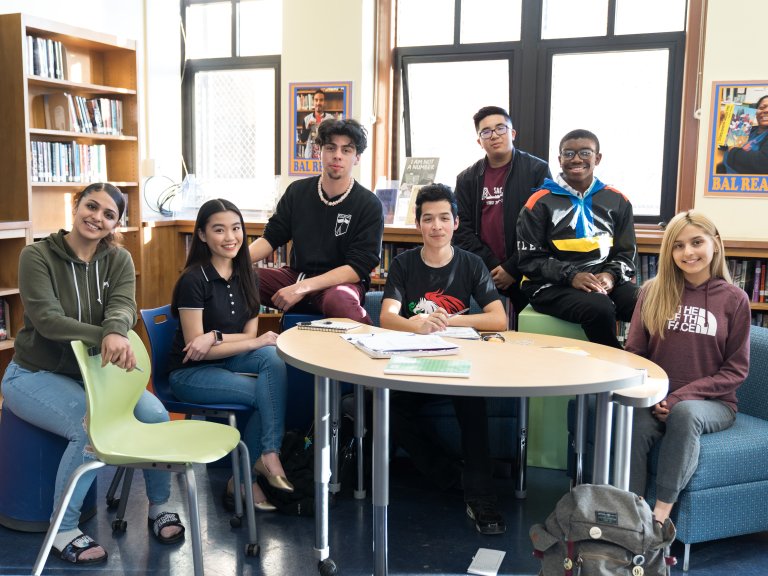Comprehending the Value of Institutions in Youngster Advancement and Area Development
Schools function as pivotal establishments for kid advancement and area development, providing atmospheres where scholastic accomplishments are complemented by the growing of social abilities and exposure to varied point of views. These academic setups not only advertise crucial reasoning and reliable interaction yet also foster empathy via collaborative jobs. Furthermore, institutions' involvement with neighborhood communities with service-learning efforts strengthens the bond between families and academic institutions. This symbiotic connection highlights the value of schools in supporting active citizenship and long-lasting discovering behaviors. Nonetheless, what are the certain mechanisms whereby these institutions accomplish such profound impacts?
Academic Accomplishment
Academic achievement functions as a keystone of youngster development, giving the foundation upon which future knowing and success are developed. Schools play a critical role in cultivating this scholastic development, supplying organized settings where kids can get important understanding and cognitive abilities. Standard curricula make certain that trainees gain efficiency in core topics such as maths, scientific research, and language arts, which are essential for both greater education and specialist opportunities.
Along with passing on fundamental academic skills, schools additionally cultivate crucial thinking, analytical capabilities, and intellectual inquisitiveness. These cognitive competencies are essential for navigating intricate real-world situations and adjusting to the ever-evolving demands of the contemporary office. Educators, as facilitators of discovering, use diverse pedagogical methods to deal with varied learning designs, therefore optimizing private trainee potential.
Furthermore, academic success is very closely connected to self-esteem and inspiration. Youngsters who experience scholastic success are more probable to create a favorable self-concept and a lifelong enthusiasm for understanding. Colleges likewise offer different resources, such as collections and modern technology, which even more improve the instructional experience and prepare trainees for a technically sophisticated culture.
Social Skill Development
Beyond scholastic achievement, the duty of institutions in social skill growth is vital. Schools work as a main location for children to find out and practice essential social skills such as dispute, interaction, and collaboration resolution. In the structured setting of a classroom, students engage with peers, instructors, and other college personnel, offering various possibilities to establish these important abilities.
Reliable social ability advancement in colleges is promoted via group activities, joint projects, and extracurricular programs. These interactions help pupils understand social standards, develop compassion, and promote a feeling of community. For example, group tasks teach pupils just how to function together towards a typical goal, pay attention to different perspectives, and navigate differences constructively.

The cultivation of social abilities during institution years lays a foundation for future personal and professional connections. Save Temecula Schools. As trainees mature, the capability to successfully collaborate and connect ends up being significantly crucial, emphasizing the institution's important function in holistic child growth
Direct Exposure to Diversity
Exposure to variety in schools is basic to promoting a comprehensive state of mind and expanding pupils' point of views. Schools work as a microcosm of the more comprehensive society, and encountering varied cultures, languages, and socioeconomic histories within this setting outfits pupils with essential abilities for browsing a significantly globalized world. This exposure urges compassion, minimizes prejudices, and promotes shared respect amongst peers.
Diverse classrooms also boost social and cognitive growth. Research suggests that pupils who engage with peers from different histories exhibit better problem-solving skills and imagination. They learn to value different viewpoints, which enhances classroom discussions and cultivates a more dynamic knowing experience. This understanding of variety prepares students for future workplaces that worth modern skills.

Neighborhood Involvement
The benefits of varied classrooms extend past the institution wall surfaces, fostering a solid sense of neighborhood engagement amongst pupils. By connecting with peers from different cultural, socioeconomic, and ethnic backgrounds, students get a broader perspective and a gratitude for diversity. This direct exposure motivates them to come to be energetic citizens that are prepared to contribute favorably to their areas.
Institutions that highlight community interaction usually include service-learning tasks, which permit students to resolve real-world Recommended Reading problems while using scholastic skills. These tasks not only boost students' understanding of their coursework yet also impart a feeling of obligation and empathy. Partnerships in between colleges and neighborhood companies provide pupils with opportunities to get involved in community events, better solidifying their function as proactive community members - Save Temecula Schools.
Additionally, adult and neighborhood involvement in colleges enhances the bond in between educational organizations and the areas they offer. Through these initiatives, institutions play an essential function in supporting area interaction and fostering social growth.
Lifelong Understanding Routines
Establishing long-lasting learning routines is important for a child's continual development and adaptability in an ever-changing globe. Institutions play a critical duty in instilling these behaviors by developing an atmosphere that promotes inquisitiveness, essential thinking, and a love for understanding. With diverse curricula and after-school activities, instructors urge students to check out numerous topics, assess info critically, and apply their finding out to real-world situations.

In addition, schools offer an organized environment where kids can create self-control and time management skills, both of which are crucial for continuous knowing. By stressing the value of establishing goals, reviewing development, and adapting approaches, universities prepare trainees to navigate the intricacies of adult life, click to find out more guaranteeing they remain lifelong students and contributors to culture.
Conclusion
In final thought, schools are crucial in fostering youngster advancement and community development by providing settings helpful to academic accomplishment, social skill growth, and direct exposure to variety. Eventually, colleges cultivate lifelong learning routines, outfitting individuals with the essential expertise and skills to contribute positively to culture.
In the structured atmosphere of a classroom, students interact with peers, instructors, and other institution staff, providing many chances to create these important abilities.
In significance, direct exposure to variety within colleges not just enriches individual pupils but also enhances the social textile of the neighborhood as a whole.
The advantages of varied class extend past the college walls, promoting a solid feeling of area involvement amongst pupils.Schools click now that highlight community interaction typically include service-learning jobs, which permit pupils to resolve real-world issues while applying academic skills. Collaborations between colleges and regional organizations supply trainees with possibilities to participate in area occasions, additionally strengthening their role as aggressive area members.